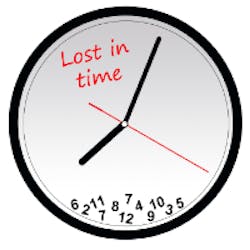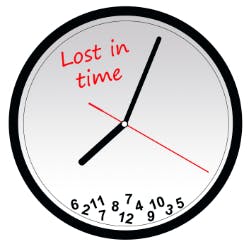Dental hygienists work longer hours, but does the extra labor benefit the bottom line?
So how many hours do you work in a month? Have you ever stopped to think about it? If you’re anything like your colleagues around the country, you’re putting in more time in the practice now than you were when the decade began.
Take a look at the numbers below
Doctor hours worked per month
- 2010 – 136.5
- 2011 – 146.0
- 2012 – 188.5
- 2013 – 174.0
- 2014 – 174.0
- 2015 – 174.0
- 2016 – 171.3
Hygienist hours worked per month
- 2010 – 131.6
- 2011 – 146.4
- 2012 – 173.6
- 2013 – 166.5
- 2014 – 168.3
- 2015 – 174.0
- 2016 – 171.2
According to the Bureau of Labor Statistics, the last recession our country went through occurred between 2007 and 2009. However, the dental industry was insulated from the recession … until after it had already concluded.
By the time 2012 arrived, people weren’t only talking about the supposed Mayan apocalypse, they were also talking about why they needed to visit the dentist any more. Times were still tight and patients started looking at where they were spending their money. Many chose things over their oral health.
With that in mind, dentists and hygienists began working more to make up the difference in lost income. That’s where we see a big jump between the number of hours worked in 2011 versus 2012.
-----------------------------------
Read related articles
- Compare your stats for adult fluoride treatment with other dental practices
- Dental hygiene's net production: Was nosedive due to ignoring consumers' payment preferences?
-----------------------------------
That certainly hasn’t slowed since 2012.
Also, there’s an interesting correlation between these numbers and the ones that we highlighted in this article on insurance versus cash payments and hygiene production per hour. Production numbers started going down in 2012 while hours started going up. Basically, you’ve been working more, but the practice (and it is a small business, let’s not forget) has not seen a bump in its bottom line.
Even though you’re working more hours, that may not equate into more time with your patients. It’s an interesting mix of trying to provide the best oral health care while also knowing your area’s economic climate.
Working more hours also doesn’t mean that the bottom line is going to grow, says one practice management consultant.
“As a practice owner, you could be losing money if you’re working more hours,” said Dayna Johnson of RaeDentalManagement.com. “Think about it. You’re keeping the practice open longer, which means the team is being paid more money to be there. Utilities are being used. Supplies are being used. It’s a situation that doesn’t lend itself well to the business succeeding.”
What does Johnson say is the answer?
“Don’t work more hours. Work smarter hours,” she said. “Hygienists want to do everything they can to help their patients improve their oral health. If you’re trying to just work as many hours as you can, this can lead to burnout and a decrease in the quality of your customer experience. How much can you get done in eight or nine hours? That’s not a good mindset for the hygienist or the dentist.”
“Make sure you are monitoring your production per day and meeting your goal each day,” she continued. “If you add more hours for the month, you will also need to increase your production goal to make up for the increase in salaries so the office overhead stays in line.”
What are you seeing in your practice? Are you working more hours now than you were?
Author’s note: Want to learn more about what Sikka Software can do for your practice? Practice Mobilizer is the free app that lets you send HIPAA compliant video messages, track patient arrival times, provides zip code specific fee data and more. Click here.
An advocate of today’s dental assistant, Kevin Henry speaks to dental audiences across the nation on topics that empower dental assistants, helping them recognize the leadership role they hold in the practice. He is the co-founder of IgniteDA.net, a community designed to enlighten, empower, and educate dental assistants.
For the most current dental headlines, click here.
About the Author

Kevin Henry
Cofounder, IgniteDA.net
With more than 20 years in the dental publishing industry, Kevin Henry is the former group editorial director for Dental Products Report and managing editor for Dental Economics. Currently, he is the editor-in-chief for DrBicuspid.com. He has spoken to dental assistants throughout the world, in person and through the Dental Assistant Nation podcast series, reminding them of the important role they play every day in their practice. He is also certified as a DiSC trainer, helping dental practices learn how to understand each other better through personality assessments and training.

